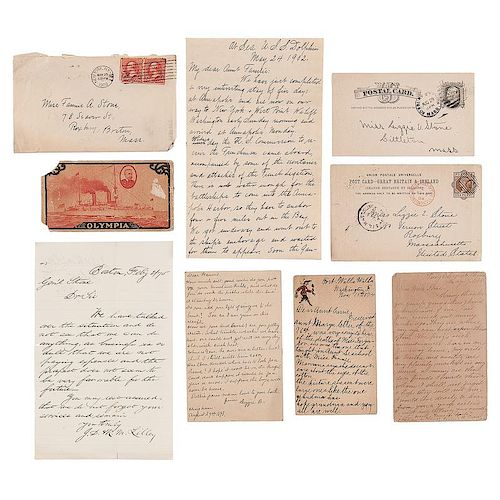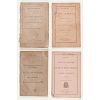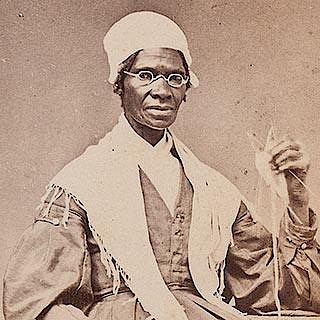Adjutant General Ebenezer Stone, Massachusetts Infantry, Archive Incl. Personal Correspondence
About Seller
6270 Este Ave.
Cincinnati , OH 45232
United States
With offices in Cincinnati, Cleveland and Denver, Cowan’s holds over 40 auctions each year, with annual sales exceeding $16M. We reach buyers around the globe, and take pride in our reputation for integrity, customer service and great results. A full-service house, Cowan’s Auctions specializes in Am...Read more
Two ways to bid:
- Leave a max absentee bid and the platform will bid on your behalf up to your maximum bid during the live auction.
- Bid live during the auction and your bids will be submitted real-time to the auctioneer.
Bid Increments
| Price | Bid Increment |
|---|---|
| $0 | $25 |
| $500 | $50 |
| $1,000 | $100 |
| $2,000 | $250 |
| $5,000 | $500 |
| $10,000 | $1,000 |
| $20,000 | $2,500 |
| $50,000 | $5,000 |
| $100,000 | $10,000 |
About Auction
Jun 9, 2017 - Jun 10, 2017
Cowan's Auctions dawnie@cowans.com
- Lot Description
The collection consists of over 25 original letters and other ephemera from the personal archive of Ebenezer Stone, Massachusetts Infantry, and Adjutant General of Massachusetts from 1851-1860. He was also a prosperous local businessman.
Ebenezer Whitten Stone was born June 10, 1801. He entered the Army in 1817. When he left in 1821 he became a merchant in the Boston area, first in clothing, then in drugs, paints and dyes from 1843-1850. He married Catharine Louisa Whitcomb on November 22, 1825 and settled eventually in Roxbury.
When he left the Army, he enlisted in the Boston City Guards, part of the Massachusetts Militia and worked his way through the ranks of the guard. In 1830, he was admitted to the Ancient and Honorable Artillery. He held local civil positions as well, as a representative to the General Court and later, as a councilman in Roxbury.
In 1851 he was appointed Adjutant General of Massachusetts. He made his first priority a complete inventory of arms, equipment and organization of the state militia. He recommended purchasing new percussion muskets and suggested a state-wide militia encampment with training. He eventually wrote the "Digest of the Militia Laws of Massachusetts."
As soon as war broke out, Stone enlisted, becoming captain of Co. D, 1st Massachusetts Volunteer Infantry. Because Stone had updated the militia a decade earlier and Governor Andrews had anticipated war and began preparations as soon as he was sworn in in January, the 1st Massachusetts was the first unit to reach Washington fully armed and ready to fight. A few other individuals or small companies had arrived earlier, especially from Pennsylvania, but most were untrained and unarmed. Stone served the entire war and was brevetted lieutenant colonel for gallantry with the 61st Massachusetts before the fall of Richmond.
Ebenezer and Catharine had a number of children, including Elizabeth (Lizzie), Mary, and Caroline (Carrie), Frances and Henry are listed in the 1870 census. A couple others died in infancy. Ebenezer died in 1880, nearing his 70th year. He does not show up in the 1880 census, but Catharine and the five children are still listed as living in the home. Somewhat interestingly, the three daughters, whose letters are part of this archive, do not seem to have married.
The archive includes stockholder handwritten with signatures by: Ebenezer Stone; Axel Dearborn, iron foundry owner of Dorchester; Gustavus Farley; Robert Farley; James W. Vose, cabinet and piano maker Boston; William G. Glynn; George Sheldon, author of the first volume of History of Deerfield published. In 1870 Sheldon founded the Pocumtuck Valley Memorial Association (PVMA) and in 1880 opened the Memorial Hall Museum after PVMA purchased the building from Deerfield Academy, Plus “Statement of Sundry Stocks purchased by E.W. Stone for joint account with John Lilley…” and two other accounts of joint stocks. Also a statement concerning a case against John Lilley in the Dist. Of Mass. Circuit court. And Stone’s certificate as an Insurance Broker, 1876.
"A Synopsis of a Court Martial of Forty Days" by Robert Caverly. Lowell (MA): Samuel N. Merrill, 1858. 8vo, printed wraps (rear wrap missing), 24pp. This is a pamphlet-style book that involves a case that General E.W. Stone brought against Robert B. Caverly for “unmilitary and unofficerlike conduct while on duty,” as an officer in the Lowell (MA) Guards. The court martial was held in Salem (even though most witnesses lived in Lowell) and lasted 40 days. Peacetime courts-martial are a bit unusual, and Caverly speculates: “… it sometimes turns out to be the offspring of an inordinate ambition to gratify private animosity or revenge, rather than to illicit truth or to establish justice. Such seems to have been the origin of the Salem Court-Martial of 1858, as will appear by glancing at its extraordinary developments and proceedings.” He then proceeds to summarize the charges, most found to be untrue. The first unusual feature of this proceeding, according to the defendant, was that the entire complaint was published in newspapers throughout the state before any charges were brought or the defendant notified of them. Then, somewhere along the line, all “evidence” of the problem events was lost, or in one case, burned (intentionally, on the orders of the complainant) on the day the individual concerned was to testify. And so the trial went, until the deliberations were interrupted when all officers of the court were invited to, and attended, a dinner party given by the complainant. The court then decided that Caverly was guilty of conduct that was “highly irregular and open to exception,” without any of this every being defined or included in the original charges – which had been found to be untrue. And when he requested clarification as to “how the Court could have arrived at such a result,” the General decided to “…not order a further hearing, because a ‘new trial would consume much time, and involve the Commonwealth in greatly increased expenses.’” Caverly then wonders at the expenses of a 40-day trial held 30 miles away from where the witnesses all lived, that was conducted on untrue accusations for which any supposed evidence had been destroyed.
ANS to "Gen'l Stone" (Boston, February 21, 1875) from John Lilley, stating in rather vague terms that we have talked about the "situation" but it does not look favorable. . . though I have not forgotten your service. . . John Lilley of Pennsylvania was a medal of honor recipient and soldier in the Union Army. He was made famous by his action of capturing the enemy flag during the Battle of Petersburg.
1844 Indenture Letter signed Stone and brother, also signed by Mace Tisdale, Josiah Hovey, etc. regarding rent of Stone Brothers business located at No. 1 Long Wharf, Boston. It states specifically …no oil shall be boiled in said store… Another Indenture from August 1, 1820, Leasing Dwelling House to Dolly Stephens, Benj. Loring and Simon Greene, by David Greenough bounded on the south by Brattle Street, on West by “a passage way” (alley?) on North by land of heirs of E. Gray and East by land of J (I?).H. Bradford, for one year. Another Indenture dated April 10, 1828, for same Dwelling House leased by Ebenezer Stone to Hannah Leaves(?) and Samuel Billings.
Pamphlet/ book titled "Opinion of The Attorney General Concerning the Compensation of Brevet Lieut. General Winfield Scott" published by AOP Nicholson (Washington), 1856. Two 8vo signatures stitched together. The material was written by Caleb Cushing to Secretary of War, Jefferson Davis. Winfield Scott had “…submitted an account for brevet pay during certain periods of time, when he claims to have been on duty and to have had a command according to his brevet rank.” The Congress had resolved, “That the grade of Lieutenant General be, and the same is hereby revived in the army of the United States, in order that when, in the opinion of the President and Senate, it shall be deemed proper to acknowledge eminent services of a major general of the army in the late war with Mexico,, in the mode already provided for in subordinate grades, the grade of lieutenant general may be specially conferred by brevet, and by brevet only, …: Provided, however, Than when the said grade of lieutenant general by brevet shall have once been filled and have become vacant, this joint resolution shall thereafter expire…” Scott was only the second person to be appointed to this lofty rank, the first being General George Washington. Because of this, there was no regular pay associated with the rank, and the Attorney General was asked to determine appropriate compensation. There is an inscription in pencil on the cover: Presented to Ebenezer Stone by John H. Clifford. Signed by Clifford, a politician and lawyer from New Bedford, MA, who served as the Attorney General during the 1850s
Letter to Miss CM Stone from Charles Noyes, Post Chaplain, Gallops Island, BH (Boston Harbor). December 31, 1861. Tells her that they don’t have an adequate space for religious services. They had a school room set up, but it was taken for officers’ quarters. Also have a Lyceum but no room in which to meet. Help not coming from QM. Requesting help (via donations) from citizens to construct a simple building with meeting room, school room and library. God bless you for what you have already done for the poor Blacks. God will surely bless you in what you may do for our poor and needy soldiers of whatever race or color.
Memorandum: To His Excellency John H. Clifford, Governor of the Commonwealth, and Commander in Chief of the Militia of Massachusetts: We the undersigned beg leave to recommend to your Excellency the continuance in Office as Adjutant General, Ebenezer W. Stone, the present incumbent.” Signed by the Mayor and Aldermen of Roxbury. (Sam. Walker, B.F. Campbell, John Hunt, Rebon Curtis, James Guild, George Curtis, Abram. G. Parker, Alvah Kittredge). Although undated, Samuel Walker was Mayor of Roxbury from 1851 to 1853.
Memo from Adjutant General of Massachusetts on official letterhead, October 1, 1859, about the formation of a company of Cadets in the First Division. Not signed.
Poole’s Annual Register of the Executive and Legislative Departments of the Government of Massachusetts, 1858. Twelfth Series. Boston: H.W. Dutton and Son, Printers, 1858. 8vo, printed wraps, 20pp. with Stone listed as adjutant general. With Ebenezer W. Stone’s identifying signature on front wrap.
Hitchcock, Calvin. A Discourse Delivered Before the Ancient and Honorable Artillery Company, June 7, 1841 Being the CCIIId Anniversary. Boston: J. Howe, 1841. 8vo, green paper wraps (not printed), 21pp. Copyright pages lists Ebenezer W. Stone as captain in 1841.
Stone, James M. The Improvements of the State House, the Investigation Thereof Investigated, and Misrepresentations Exposed. Boston: A. Williams & Co., Publ., 1868. 8vo, printed paper wraps, 93pp. With inscription Genl. Ebenezer W. Stone from the Author across the top of the front wrap. Front wrap detached. Some water stains.
Letter from E.J. Stone, Forest Grove, November 18, 1877, age 16. To the President of the United States, requesting an at-large appointment to USMA West Point. He notes: Son of 1st Lt. E.W. Stone, 21st Inftry, Brvt. Lt. Col. U.S.A. My Father entered the Volunteer Service in Mass. Vols. May 1861 – Served through the Rebellion and was then appointed into the regular Army. Living in the Army I do not understand that I can acquire the residence required by Law to obtain an appointment from any state or Territory and would therefore ask an appointment at large.
Speeches of Messrs. Hayne and Webster in the United States Senate, on the Resolution of Mr. Foot, January, 1830. Hartford: Case, Tiffany & Co., printers, 1850. 8vo, printed paper wraps, 84pp.
Letter from Stone's brother mentioning a female falling ill at Fort Lee (NJ?), bleeding from stomach, etc., possibly from some type of illness.
Letter, 1p + a bit, 8 x 13 in. Farmington, October 22, 1855, to E.W. Stone, Esqr. From Solomon Cowles. Much about his prize-winning cow, which got her feet cut on a rough road so now he can’t walk her to the nearest rail line to go to the Great National Exhibition.
ALS, At Sea, USS Dolphin, May 24, 1902. 11pp on 5 x 8 in. stationery. To “Aunt Fannie (Stone)” from “Genie.” He talks about a five-day stay at Annapolis, in which “the Frenchman” and some of the French legation came on board. They were anchored in the harbor with the Olympia, Kearsarge and Alabama. He describes the dinner given in honor of the visitors, noting that he was seated at the end of the head table, giving him a great overall view of the scene. The President and his entourage came onboard the Dolphin. Many other events followed. The Dolphin was then to go to West Point to escort the French from there to New York Harbor. His wife had become chairman of the committee planning a big lawn party for the Woman’s Army-Navy League and was nearly exhausted. The rest is mostly personal. With a collector’s card or bookmark with the “Olympia” and an oval portrait of Admiral Dewey.
Pamphlet, Thompson, A.C., Pastor. A Pastoral in War-Time. Remarks at the Fellowship Meeting of the Eliot Church, Boston. Wednesday Evening, May 4, 1898. Boston: Beacon Press, 1898. 12mo, printed wraps, saddle-stitched with string, 18pp.
Gorner, C.A. Englisch. Lustspiel in Einem Aufzuge. Boston, S.R. Urbino, 1865. 12mo, in printed paper wraps (rear missing), 59pp. Play, “English” in German.
Accompanied by a number of personal family letters.
____________________________________________________________________
Personal letters: Stone from daughter Mary; postcard to Elizabeth (Lizzie) from parents; 2 postcards to Lizzie from friends (one from UK, one from Shanghai); note from Mary Stone inviting cousins Eddie and George Sparhawk to their home the following evening. Charlestown, 10 April 1871; postcard to Miss Carrie M. Stone of Boston Highlands, MA. Fort Walla Walla, Washington Terr., 15 Nov. 1874. “Dear Aunt Carrie” – but unsigned; postcard to Miss Fannie Stone, Roxbury, MA. From Lizzie, 29 Aug. 1898. Asking Fannie how much salt and water she uses for her mustard pickles, and when one adds the vinegar. Other personal info; ALS, Lizzie Stone to her mother, Bristol, 27 Jan. 1870. 4pp (5 x 8 in.); early history from newspaper clipping in Brown University Digital Library.
- Shipping Info
-
SHIPPING. At the request of the buyer, Cowan's will authorize the shipment of purchased items. Shipments usually occur within two weeks after payment has been received. Shipment is generally made via UPS Ground service. Unless buyer gives special instructions, the shipping method shall be at the sole discretion of Cowan's Auctions, Inc.. Cowan's is in no way responsible for the acts or omissions of independent handlers, packers or shippers of purchased items or for any loss, damage or delay from the packing or shipping of any property.
-
- Buyer's Premium



 EUR
EUR CAD
CAD AUD
AUD GBP
GBP MXN
MXN HKD
HKD CNY
CNY MYR
MYR SEK
SEK SGD
SGD CHF
CHF THB
THB












